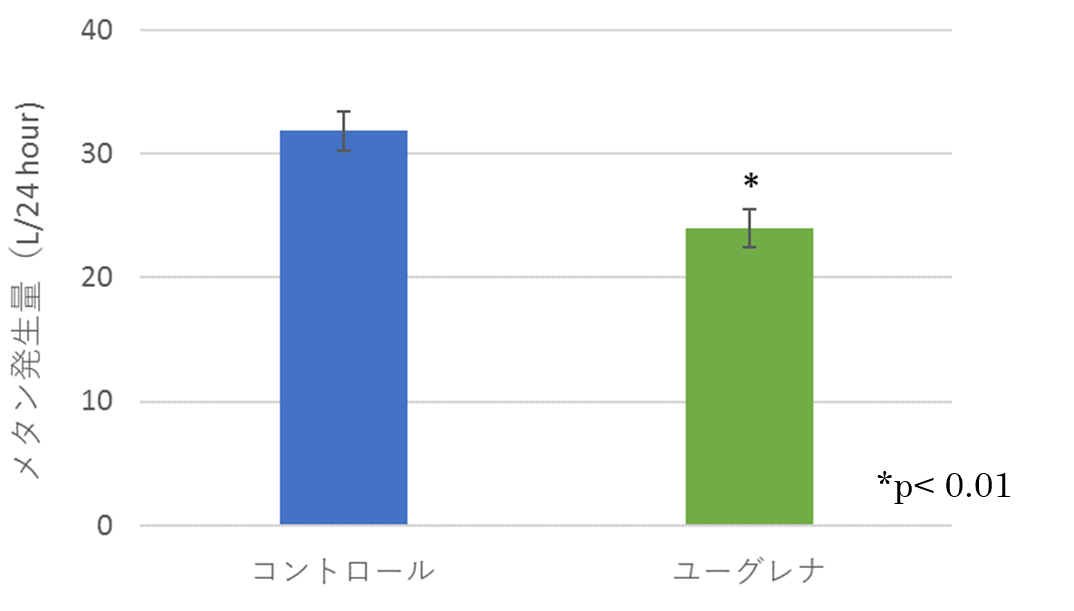Press Releases
* Please note that the news release contains the content at the time of the announcement and may differ from the latest information.
By substituting part of the feed for ruminant livestock with the microalgae Euglena
Confirmed the effect of reducing the amount of methane generated
Euglena Co., Ltd.
Euglena Co., Ltd. (Headquarters: Minato-ku, Tokyo, President: Mitsuru Izumo) conducted a joint study with Associate Professor Takehiro Nishida of the Life and Food Science Research Division of Obihiro University of Agriculture and Veterinary Medicine. We have confirmed the effect of reducing methane emissions from sheep by substituting a part of the feed fed to Euglena
These research results were submitted for international patent application on December 9, 2016, and presented at the Japanese Society of Animal Science held on March 29, 2017.
Ruminants such as cows and sheep produce methane by fermenting organic matter by methanogens in the stomach, and as a result, excrete methane along with exhaled breath. The excretion of the natural energy of organic matter as methane means a loss of nutrient absorption that livestock should be able to obtain. Methane is one of the greenhouse gases, and its greenhouse gas capacity is about 25 times that of carbon dioxide. Therefore, reducing the amount of methane generated leads to reduction of energy loss in livestock and reduction of environmental load.
In this study, we evaluated the effect of methane generation by feeding sheep with a feed in which a part of the feed was Euglena As a result, it was suggested that replacing a part of the feed with Euglena powder may reduce the amount of methane generated in sheep and improve the amount of nutrient absorption.
Going forward, we will continue Euglena as feed, promote research on improving added value when used as feed, and aim to commercialize feed use.
The details are as follows.
Research on methane production and feed from ruminants
■ Research content
We compared the effects of methane production between sheep (control) fed a normal diet and sheep fed a diet in which part of the diet was Euglena As a result, it was confirmed that substituting a part of the feed with Euglena powder has the effect of reducing methane emissions by 18% compared to the case of feeding normal feed.

Changes in methane generation in each plot
■ Consideration
It was suggested that replacing part of the feed with Euglena powder may reduce methane production in sheep and improve nutrient absorption.
-Contact for inquiries from the press-
Euglena Co., Ltd. Public Relations and IR Division
